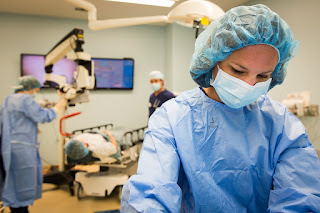Body temperature
As you may have already learned, body temperature is actually an internal clock that allows us to sleep and wake up at specific times.
It is also extremely important to understand that the rise and fall of body temperature is a signal that our body feels awake or tired.
Whenever your body temperature begins to drop, you feel tired, lethargic, and sleepy. As your body temperature rises, you feel more energized, more alert and able to concentrate better.
Do not confuse the drop in body temperature at certain times of the day with the need for sleep.Your body temperature may rise and fall several times a day in response to your activities.
When you subject your body to high physical stress, its temperature rises above normal. In response to any intense physical activity, body temperature drops for a period of time immediately after the activity is stopped.
For example, if you do high-intensity work for 8 hours, you may feel completely exhausted and ready to fall asleep when you get home around 4 p.m. In fact, you will find that this feeling of tiredness is not a real desire for sleep, but rather the body's response to lowering body temperature.
If you stay awake at this time and give your body a “rest period”, after this time your body temperature will return to normal and you will feel alert again. In the power sleep plan, I suggest taking a 10-45 minute nap during the day to recover physically. It is ideal to take this nap when you feel your body temperature dropping as it will help you fall asleep. Always limit your naps to 45 minutes to avoid deep sleep. It's normal to feel lethargic or sleepy when you wake up after a nap because your melatonin levels are higher. Immediately upon waking, get as much intense light as possible and remember to MOVE to increase your body temperature.
We already know that body temperature works and ticks like an internal clock that controls our sleep cycles. Body temperature also controls our body's metabolism, circulation and other involuntary activities.
Fluctuations in body temperature also indicate and cause a feeling of alertness or fatigue. The lowering of body temperature causes a feeling of lethargy, fatigue and sleepiness. Conversely, an increase in body temperature creates a feeling of alertness and energy, resulting in improved concentration.
The rise and fall of body temperature throughout the day should not be mistaken as a need for rest or sleep. This happens several times a day, depending on the body's activity at the time.
When the human body is forced to engage in intense physical activity, the body temperature automatically increases and slowly decreases after the activity is completed. This drop in body temperature causes a feeling of tiredness or sleepiness. When your body does intense physical work during the day, you feel tired and just want to sleep when you get home. This happens not because of the desire to sleep, but because of the drop in body temperature and the body's reaction to the drop in temperature.
If you allow this period to pass and wait for your body temperature to return to normal, you will feel awake and alert again. In order to regain physical strength, I recommend taking a 10- to 45-minute nap during the day as part of my energy sleep plan. You should take this nap when you are sleepy,
i.e. when your body temperature has dropped, as it makes it easier for you to fall asleep. The afternoon nap should not last longer than 45 minutes and should not lead to deep sleep.Deep sleep only lowers your body temperature further.
When you wake up after a nap, you may feel sleepy and lethargic due to high levels of melatonin. It is important to restore normal body temperature through light exercise and exposure to light.
It's understandable that you feel tired even if you lead a sedentary lifestyle. This doesn't mean you need more sleep, but it does mean you need more exercise and less sleep.This happens due to a frequent drop in body temperature.





Comments
Post a Comment